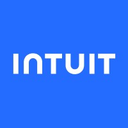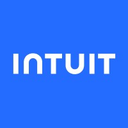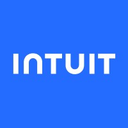QuickBooks vs Akaunting (2026 Comparison)

QuickBooks offers a comprehensive suite of financial management tools, making it a top choice for businesses. Its user-friendly interface and excellent customer support ensure a seamless experience.
- Comprehensive financial management tools
- User-friendly interface
- Excellent customer support
- Higher cost for advanced features
- May be overwhelming for beginners
Free plan?
YesStarting price
$17.50 per month
Akaunting is a free, open-source accounting software that caters to small businesses and freelancers. Its user-friendly interface and essential features make it an attractive option for managing finances.
- Free and open-source
- User-friendly interface
- Good for small businesses
- Limited advanced features
- Less comprehensive customer support
Free plan?
YesStarting price
$24 per monthWhat is QuickBooks?
QuickBooks is a comprehensive accounting software designed to help businesses manage their finances efficiently. It offers features like invoicing, expense tracking, payroll, and tax management, making it a go-to solution for small to medium-sized businesses. With its user-friendly interface and robust reporting capabilities, QuickBooks simplifies financial management, allowing you to focus on growing your business. Whether you're a freelancer or a business owner, QuickBooks provides the tools you need to keep your finances in check.
What is Akaunting?
Akaunting is a free, open-source accounting software that caters to small businesses and freelancers. It offers a range of features such as invoicing, expense tracking, and financial reporting, all accessible through a user-friendly interface. Akaunting's flexibility and affordability make it an attractive option for those looking to manage their finances without breaking the bank. With its cloud-based platform, you can access your financial data from anywhere, ensuring you stay on top of your business's financial health.
Pros and Cons of QuickBooks vs Akaunting

Pros & Cons of QuickBooks
- QuickBooks offers a wide range of financial management tools, including invoicing, expense tracking, payroll, and tax management, making it a one-stop solution for businesses.
- QuickBooks is designed with a user-friendly interface, making it easy for users to navigate and manage their finances efficiently, even if they are not accounting experts.
- QuickBooks provides excellent customer support, with various resources and assistance available to help users resolve issues quickly and efficiently.
- While QuickBooks offers a comprehensive suite of features, the cost can be higher for businesses that require advanced functionalities, which may not be suitable for all budgets.
- QuickBooks' extensive features and capabilities can be overwhelming for beginners, requiring a learning curve to fully utilize its potential.

Pros & Cons of Akaunting
- Akaunting is a free, open-source accounting software, making it an affordable option for small businesses and freelancers looking to manage their finances without incurring high costs.
- Akaunting offers a user-friendly interface, making it easy for users to navigate and manage their finances, even if they are not accounting experts.
- Akaunting is well-suited for small businesses and freelancers, providing essential accounting features that cater to their needs without overwhelming them with unnecessary complexities.
- While Akaunting offers essential accounting features, it may lack some of the advanced functionalities found in other accounting software, which may not be suitable for larger businesses.
- Akaunting's customer support may not be as comprehensive as other accounting software, which could be a drawback for users who require extensive assistance.
QuickBooks vs Akaunting: At A Glance
Value to Price
QuickBooks offers a comprehensive suite of features that justify its price, making it a valuable investment for businesses seeking robust financial management tools. Akaunting, being free, provides excellent value for small businesses and freelancers looking for basic accounting functionalities. If you're looking for a cost-effective solution with essential features, Akaunting is a great choice.
Ease of Use
QuickBooks is known for its intuitive interface, making it easy for users to navigate and manage their finances efficiently. Akaunting also offers a user-friendly experience, but it may require a bit more time to get accustomed to its features. If you prioritize ease of use, QuickBooks might be the better option.
Functionality
QuickBooks excels in functionality, offering a wide range of features such as payroll, tax management, and advanced reporting. Akaunting provides essential accounting features but lacks some of the advanced functionalities found in QuickBooks. If you need comprehensive financial management tools, QuickBooks is the way to go.
Scalability
QuickBooks is designed to grow with your business, offering scalable solutions that cater to both small and medium-sized enterprises. Akaunting is suitable for small businesses and freelancers but may not offer the scalability needed for larger organizations. If scalability is a priority, QuickBooks is the better choice.
Integrations
QuickBooks offers a wide range of integrations with other business tools, enhancing its functionality and making it a versatile choice for businesses. Akaunting also provides integrations, but the options are more limited compared to QuickBooks. If you rely on multiple tools for your business operations, QuickBooks offers better integration capabilities.
Customer Support
QuickBooks provides excellent customer support, with various resources and assistance available to help users resolve issues quickly. Akaunting offers support as well, but it may not be as comprehensive as QuickBooks. If customer support is crucial for your business, QuickBooks is the more reliable option.
Security
QuickBooks prioritizes security, offering robust measures to protect your financial data. Akaunting also ensures data security, but QuickBooks' advanced security features provide an added layer of protection. If security is a top concern, QuickBooks is the safer choice.
Overall Rating
QuickBooks stands out with its comprehensive features, ease of use, and excellent customer support, making it a top choice for businesses. Akaunting offers great value for small businesses and freelancers, but it may not match the advanced capabilities of QuickBooks. If you're looking for a well-rounded accounting solution, QuickBooks is the better option.
QuickBooks vs Akaunting: A Detailed Breakdown of Key Features
Invoicing
QuickBooks offers a robust invoicing system that allows you to create and send professional invoices with ease. Its automation features save you time by sending reminders and tracking payments. Akaunting also provides invoicing capabilities, but it may lack some of the advanced features found in QuickBooks. If you need a comprehensive invoicing solution, QuickBooks is the better choice.
Expense Tracking
QuickBooks excels in expense tracking, offering features like receipt capture and categorization to help you manage your expenses efficiently. Akaunting provides basic expense tracking, but it may not offer the same level of detail and automation as QuickBooks. If you prioritize detailed expense management, QuickBooks is the way to go.
Payroll Management
QuickBooks offers a comprehensive payroll management system, making it easy to handle employee payments and tax calculations. Akaunting provides basic payroll features, but it may not be as robust as QuickBooks. If you need a reliable payroll solution, QuickBooks is the better option.
Tax Management
QuickBooks simplifies tax management with features like automatic tax calculations and filing assistance. Akaunting offers basic tax management, but it may not provide the same level of automation and support as QuickBooks. If you need a comprehensive tax solution, QuickBooks is the way to go.
Financial Reporting
QuickBooks offers advanced financial reporting capabilities, allowing you to generate detailed reports and gain insights into your business's financial health. Akaunting provides basic reporting features, but it may not offer the same level of detail and customization as QuickBooks. If you need in-depth financial analysis, QuickBooks is the better choice.
Multi-Currency Support
QuickBooks offers multi-currency support, making it easy to manage international transactions and financial data. Akaunting also provides multi-currency features, but it may not be as comprehensive as QuickBooks. If you deal with multiple currencies, QuickBooks is the more reliable option.
Pricing Comparison of QuickBooks and Akaunting
To assist you in making an informed choice, we’ve outlined the pricing plans and essential features of QuickBooks and Akaunting. This comparison will highlight the best option for managing your business finances.

QuickBooks Pricing Plans
- Automate bookkeeping tasks to save time and reduce errors.
- Capture and organize receipts for easy tracking and reporting.
- Track mileage automatically to maximize tax deductions.
- Generate general reports to understand business performance.
- Handle multiple currencies for international transactions.
- Connect up to 3 sales channels for streamlined operations.
- Access enhanced reports for deeper business insights.
- Collaborate with up to 3 users for better teamwork.
- Analyze project profitability to optimize resources.
- Connect all sales channels for comprehensive sales management.
- Access comprehensive reports for detailed financial analysis.
- Collaborate with up to 5 users for enhanced productivity.
- Sync data with Excel for seamless data management.
- Access powerful reports for strategic decision-making.
- Manage up to 25 users for large team collaboration.
- Utilize 24/7 support and training for continuous assistance.

Akaunting Pricing Plans
- Manage up to 5 bills to keep track of expenses.
- Connect with 1 bank for seamless transactions.
- Handle W-9 and Form 1099 for tax compliance.
- Support for multiple currencies for global transactions.
- Unlimited bills to manage all expenses efficiently.
- Unlimited bank connections for comprehensive financial management.
- Accept payments directly to streamline revenue collection.
- Capture receipts for accurate expense tracking.
- Inventory management to track stock and supplies.
- Project management tools for task organization and tracking.
- CRM features to manage customer relationships effectively.
- Point of Sale (POS) integration for retail operations.
Our Rating Methodology
We thoroughly test each accounting software, evaluating key features like ease of use, functionality, and scalability. We also analyze user reviews to ensure our recommendations fit your needs. Each of the seven evaluation factors is weighted by importance to provide an accurate final rating, helping you avoid poor-quality tools and make informed decisions.
QuickBooks or Akaunting: Which One Matches Your Business Needs?
Choose QuickBooks If You Need ...
- Comprehensive financial management
If you need a comprehensive financial management solution with features like invoicing, expense tracking, payroll, and tax management, QuickBooks is the better choice. Its robust capabilities make it a one-stop solution for businesses.
- User-friendly interface
If you prioritize ease of use and a user-friendly interface, QuickBooks is the way to go. Its intuitive design makes it easy for users to navigate and manage their finances efficiently.
Choose Akaunting If You Need ...
- Free and open-source
If you're looking for a free, open-source accounting software that offers essential features, Akaunting is the better option. It's an affordable choice for small businesses and freelancers.
- Good for small businesses
If you're a small business or freelancer looking for essential accounting features without overwhelming complexities, Akaunting is a great choice. It caters to the needs of small businesses effectively.
Frequently Asked Questions
 Which software is better for small businesses?
Which software is better for small businesses?
 Does QuickBooks offer better customer support than Akaunting?
Does QuickBooks offer better customer support than Akaunting?
 Which software offers better invoicing features?
Which software offers better invoicing features?
 Is Akaunting suitable for freelancers?
Is Akaunting suitable for freelancers?
 Which software is more scalable?
Which software is more scalable?
 Does QuickBooks offer better security features?
Does QuickBooks offer better security features?

Martin Lunendonk
Martin Lunendonk is a senior tech writer specializing in website builders, web hosting, and ecommerce platforms. With a background in finance, accounting, and philosophy, he has founded multiple tech startups and worked in medium to large tech companies and investment banking, bringing deep expertise and reliable insights to his software reviews.



